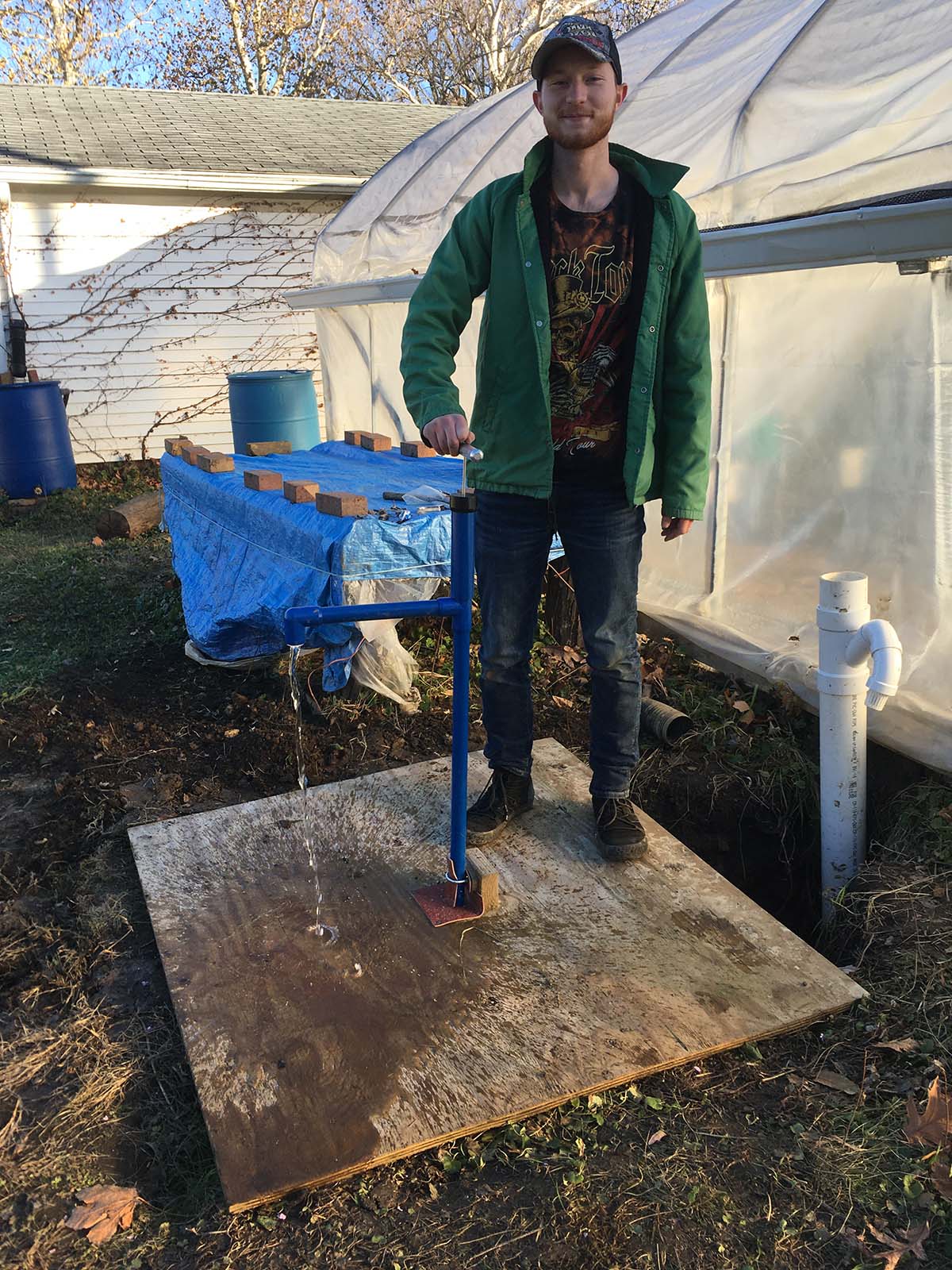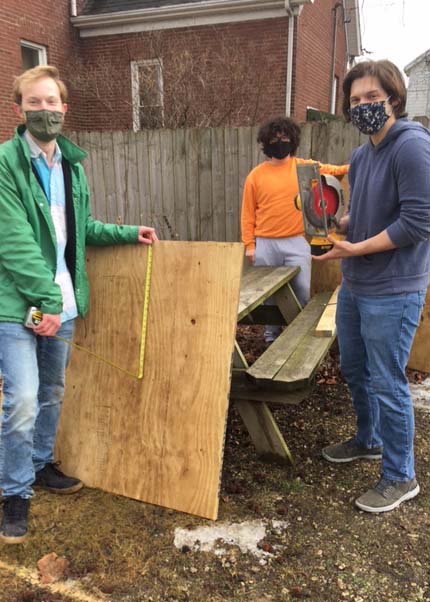Student Project Leads to Winter Water Access at Peace Garden
March 25, 2022
BLOOMINGTON, Ill. — A student-led project has established water access at Illinois Wesleyan University’s Peace Garden during the winter months.
Environmental Studies major Ryan Reish '22 spearheaded plans to develop and install a water cistern to provide irrigation for the Peace Garden's hoop greenhouse. He received help with the project from friends and fellow members of the Peace Garden registered student organization .

The project began in 2021 when Professor of Political Science Jim Simeone presented the idea to Reish during an internship. Reish, president of the Peace Garden, jumped on the opportunity since water access had been a concern in years past.
With a personal interest in irrigation, the project allowed Reish to combine his passion for sustainability, engineering and water management while aiding the RSO he leads.
“The reason that the cistern is so helpful is because it completely eliminates the need to go to the Myers Welcome Center for water and it keeps our water from freezing in the winter,” said Reish. “Our independence from the municipal water supply means that we are not taking a toll on our already strained waterways and the fact that the cistern makes tending to the plants significantly easier means that we can grow more food for the community.”
One challenge was the freezing temperatures faced during Illinois winters. While cisterns are not uncommon, creating one that collects rainwater and keeps it from freezing without access to electricity is a rare feat.
After countless hours of research, Reish came across Apocalypse Well Pumps, a family-owned business in Montana that makes freeze-proof pumps. Founder Kurt Bloomback worked closely with Reish in designing the project and developing a custom cistern pump for the application.
The first problem was solved. Reish spent the remainder of his internship troubleshooting different ways to maintain the temperature of the cistern tank. With the ground staying at an average temperature of 50 degrees, Reish’s final design included building an underground platform and insulation to secure anti-freezing measures.
“It felt good to know that I was building something that has never been done before,” said Reish.

Once the design of the project was finalized, Reish worked alongside fellow garden and community members to install the tank. The task included digging a sizable hole to fit the 275-gallon tank and attach the PVC pipe gutter filtration system to collect rainwater from the hoop house.
“Another immense help to the project was Srinivas Garapati. He became involved in the Peace Garden because he was helping his son, who is an Eagle Scout, complete another rainwater collection system that ties into the same gutters as the cistern,” said Reish.
Reish notes his gratitude to Professor Jim Simeone, community member Srinivas Garapati and his son, Peace Garden members, and his friends for their continuous support and aid in the completion of this project.
But Reish isn’t the only one who’s thankful.
“Every time we water the greens in the hoop house in the dead of winter, we thank Ryan,” said Simeone.
As a senior, Reish was able to leave his mark on campus through creating a project that will foster sustainability for years to come.
“ I love the idea that the cistern will be helpful for years after I am gone,” said Reish. “There was a lot of tough manual labor involved, but I have some great memories of building the project with my friends."
Located on the east side of the IWU campus at 1212 N. Evans St., the Peace Garden’s mission is to serve the curricular and culinary needs of the student body while existing as a tool for civic engagement with the surrounding community, state, nation and globe. To learn more about the RSO visit the Action Research Center page .
By Kailee Galloway ’23